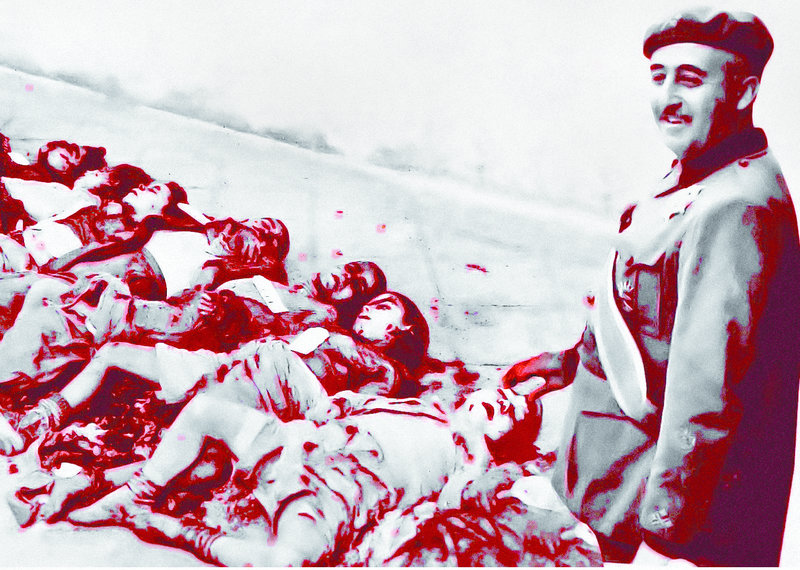Long-term resident
Matthew tree
Old Grand-Dad
Last month, Figueres - suitably enough for a town which is home to the Dalí Theatre Museum - hosted a festival called Ingràvid ('Weightless') aimed at promoting contemporary art that is both accessible and attractive to the general public. One of the pieces was a Fiat which had been carefully plastered with Francoist insignia by artist Núria Güell, and which was supposed to be driven slowly along the streets of Figueres to remind people that Francoism was still prevalent in Spain, forty years after Franco's death. I say 'supposed', because this particular moveable installation was banned by the mayor on the grounds that Francoism is no longer prevalent and therefore parading its symbols around town would make no sense. The curator of the festival, Ester Pujol, was understandably furious. Even so, I found myself asking, was the mayor being fabulously obtuse, or did he have a point? After all, just how prevalent is Francoism today? It's true that in Tortosa there's a hideous monument to those who fought on the Fascist side in the Civil War. And then there's the Francisco Franco Foundation in Madrid - dedicated to fostering a positive image of the dictator - which has received government subsidies from the Popular Party (currently in power in Spain). And the remnants of the Falange - Franco's equivalent of Mussolini's Blackshirts - are still a legalised political party. But that would seem to be about it. So it struck me that Ms Güell might have been overdoing it a bit with her embellished automobile. That night, however, Spanish public television (TVE) broadcast a prime time interview by Bertín Osborne (the Warren Beatty of Spanish show business) and Franco's granddaughter, Carmen Martínez-Bordiú. The interview took place in her living room, which was jam-packed with photographs of the dictator as well as some curious paintings of women's buttocks (whose praises Osborne lost no time in singing). The interview was clearly intended as light entertainment, with the interviewer fielding innocuous, featherweight questions (“Your grandfather was the most powerful man in Spain; how do you feel about that?”). Indeed, Osborne and Martínez-Bordiú chatted and laughed about the latter's grandfather as if he'd been just one more gracious old gentleman, with not the tiniest allusion to him being responsible for over 200,000 deaths - many of them judicial murders (not least, that of the Catalan president Lluís Companys in 1940) - or his having ruined the lives of millions of citizens thanks to his insistence on running a relentlessly Fascist regime right to the bitter end. Ms Güell, perhaps you should get your satirical car out and start driving: you're needed urgently, and not just in Figueres.


